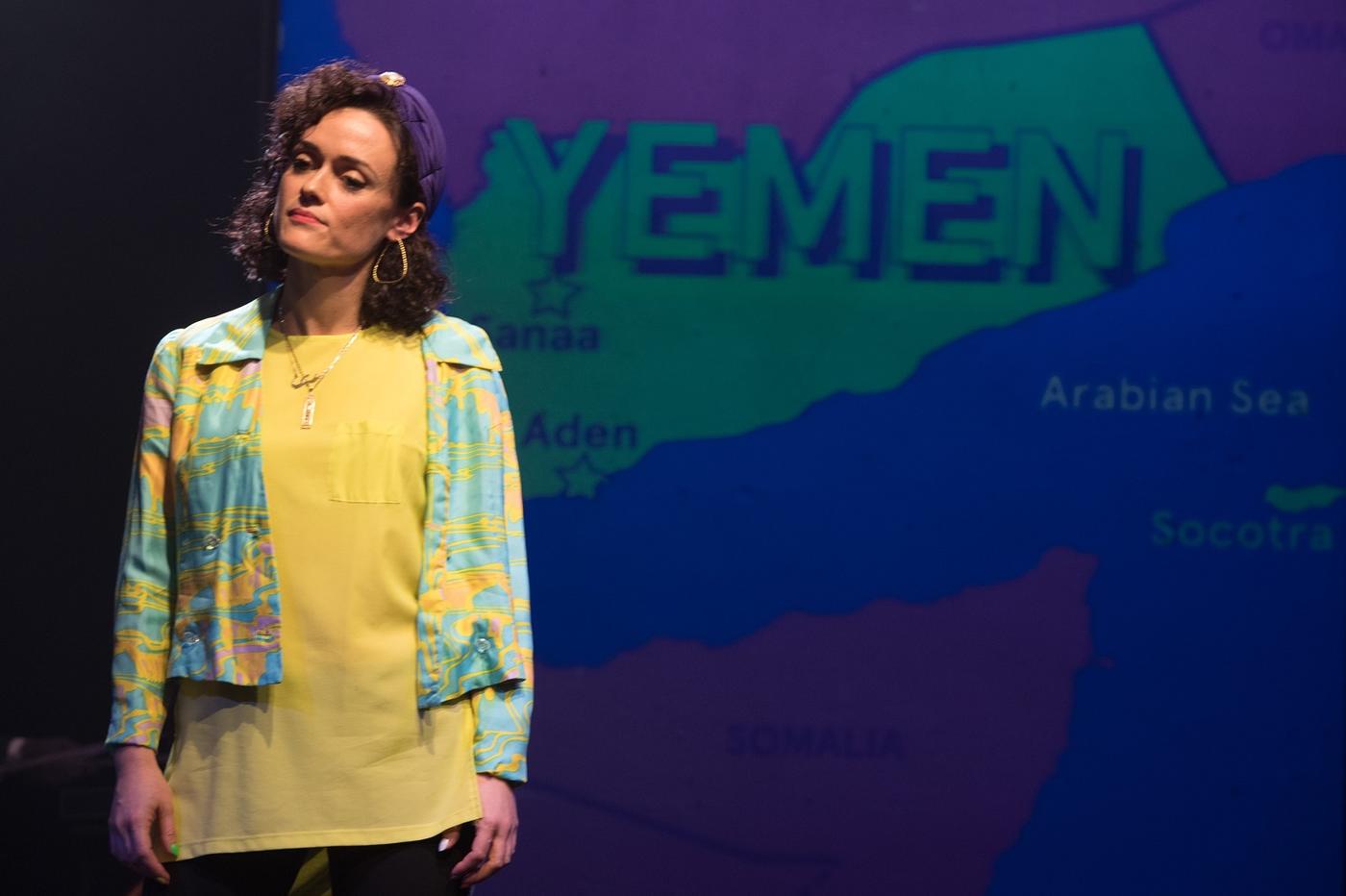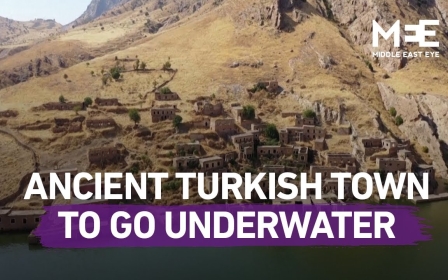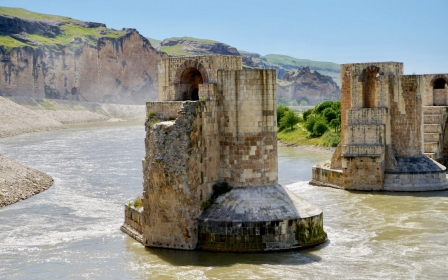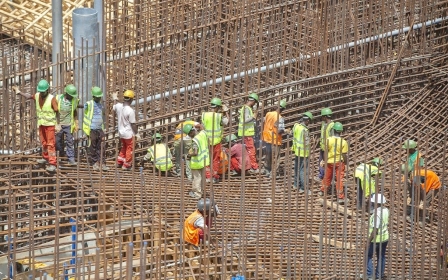A History Of Water In The Middle East: Drowned out by too much information

A History Of Water In The Middle East does not sound like the most enticing of plays for a night at the theatre.
But that conceals its premise: award-winning British-Egyptian writer and actor Sabrina Mahfouz at London’s much-vaunted Royal Court with a work that suggests a sharp and fresh perspective on the region’s politics.
Mahfouz is firmly on the radar for British theatre critics and audiences. At the Edinburgh Festival, she has been recognised with awards for her play Clean (2013), which is about women who work in the criminal underworld; and Chef (2014), about a woman working in prison.
Mahfouz is currently a writer in residence at Shakespeare’s Globe and editor of the anthology, The Things I Would Tell You: British Muslim Women Write (2017).
New MEE newsletter: Jerusalem Dispatch
Sign up to get the latest insights and analysis on Israel-Palestine, alongside Turkey Unpacked and other MEE newsletters
Water conflict has have proved to be a creative impetus for drama and analysis, not least in the US. The shortages in 20th-century California, for example, inspired Roman Polanski’s noir thriller Chinatown (1974). In more recent years, attention has switched to the Middle East, not least in how demand for water has in part driven the decade-long conflict in Syria as well as Egypt’s hostile relations with Ethiopia due to the latter’s dam construction programme.
A History Of Water is no conventional play. Think of it more as “gig theatre” with live music and song, interweaving personal memoir and historical anecdote.
The cast, Mahfouz tells the Royal Court audience during the play, are all “British-Middle Eastern” (Mahfouz’s father is Egyptian; her mother Guyanese-British and she lives between Cairo and south London). Co-performer Laura Hanna is also British-Egyptian, while musician Kareem Samara is British-Palestinian. All use their own first names rather than those of characters.
Mahfouz explains that she fell in love with the subject as a child walking Cairo’s corniche, watching the wooden felucca boats on the Nile.
How do you turn water into drama on the stage? Here, as directed by Stef O’Driscoll, it’s a rapid-fire run-down of Middle East water woes, country by country, in under 70 minutes; complete with flashing neon, stage smoke and a drum and oud player beating noisy time from the back of the stage.
Mahouz and Hanna launch into lecture, poetry and dance with what the play script calls “big bassy sounds and operatic singing”. One highlight has Hanna singing out as a Jordanian plumber. Jordan’s water supply per person is reported at a quarter of the world’s average, but as much as 75 percent is lost to leaks. The song celebrates or satirises, the kingdom’s programme to solve its severe water crises by training women and girls as plumbers so they can save “landscapes, lives and legacies” by stopping leaks.
“LEAK! Leak! Is there a leak?” sings Hanna, a “superhero with a plunger”. “There was a time, when women would never be able to bend, under a stranger’s sink, and say, I can see where the problems is… Pass me the spanner please.”
A History Of Water squarely takes aim at the UK as the original source of the Middle East’s water crisis through its imperial agenda, including protecting the sea trade routes from the Gulf to the Indian colonies, carving up the Ottoman Empire, the British Mandate in Palestine and the subsequent founding of the State of Israel.
More recent fall-out runs from Iraq’s “bubbling border anger” at Kuwait’s generous coastline (given by the British to keep a friendly sheikh onside) to a long-running “protection racket” over Bahrain perpetuated in the UK’s newest naval base and Gaza’s desperate water shortages caused by the ongoing Israeli blockade and military action.
But what Mahfouz really wants to explore, it turns out, is her attempted recruitment as a British spy. Mahfouz tried for the civil service’s fast-stream route into the Ministry of Defence, tempted by the exciting life of an intelligence agent. But, she says, she failed the security vetting. Boldy, she's built the experience into the performance.
This element is counterpointed by a posh-voiced MI6 officer (David Mumeni), whose public school tones cut across Mahfouz’ working-class south London accent, demanding answers on everything from her Egyptian heritage and suspect loyalties to her sex life and how often she visits the mosque.
It's a heady mix, but it all adds up to a curious, scattershot and ultimately unsatisfying approach. Prowling the stage in her bright Adidas track-suit, Mahfouz and her material wander wider than a Mesopotamian tributary, with a potted and partial history lesson that ultimately lacks punch.
Facts that don’t quite fit the blame-Britain argument – including Turkey’s often contentious dam-building programme, hard-headed modern rivalries over the Tigris and Euphrates and Iran’s lurking water crisis - are washed over. Others, like the horrors of the war in Yemen, where the US and UK have supplied arms to the Saudi-led coalition, are oddly shoe-horned in.
Theatrically, the sardonic song and dance routines are not sharp enough to hit home. There is rich material here, but perplexingly, there is both too much and too little. A History Of Water feels like a torrent, rather than a cool clear spring - and not a very thirst-quenching one at that.
A History Of Water In The Middle East is at the Jerwood Theatre Upstairs, at the Royal Court Theatre until November 16.
Middle East Eye delivers independent and unrivalled coverage and analysis of the Middle East, North Africa and beyond. To learn more about republishing this content and the associated fees, please fill out this form. More about MEE can be found here.







